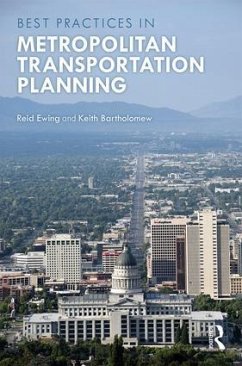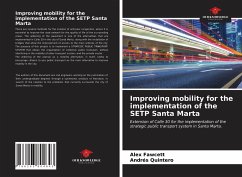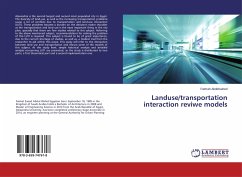
The Right to Transportation
Moving to Equity
Versandkostenfrei!
Versandfertig in 1-2 Wochen
68,99 €
inkl. MwSt.

PAYBACK Punkte
34 °P sammeln!
Does transportation affect the lives of minority, low-income, elderly, and physically disabled citizens? The answer is yes, and those effects can be profound, according to The Right to Transportation. The authors argue that transportation policies can limit access to education, jobs, and services for some individuals while undermining the economy and social cohesion of entire communities. Policies that have nurtured the U.S. highway system and let public transportation wither have also led to ghettos and social isolation. More and more communities are recognizing the problem. This book explain...
Does transportation affect the lives of minority, low-income, elderly, and physically disabled citizens? The answer is yes, and those effects can be profound, according to The Right to Transportation. The authors argue that transportation policies can limit access to education, jobs, and services for some individuals while undermining the economy and social cohesion of entire communities. Policies that have nurtured the U.S. highway system and let public transportation wither have also led to ghettos and social isolation. More and more communities are recognizing the problem. This book explains the strategies and policies that can address inequities in the nation's transportation and transportation planning systems so that the benefits and burdens of those systems can be shared equally across all communities. With a close examination of how transportation policies affect individuals and communities, the book is a guide to transportation fairness. It explains the demographic trends, historical events, and current policies that have shaped transportation in the U.S. and offers recommendations for moving to equity.














